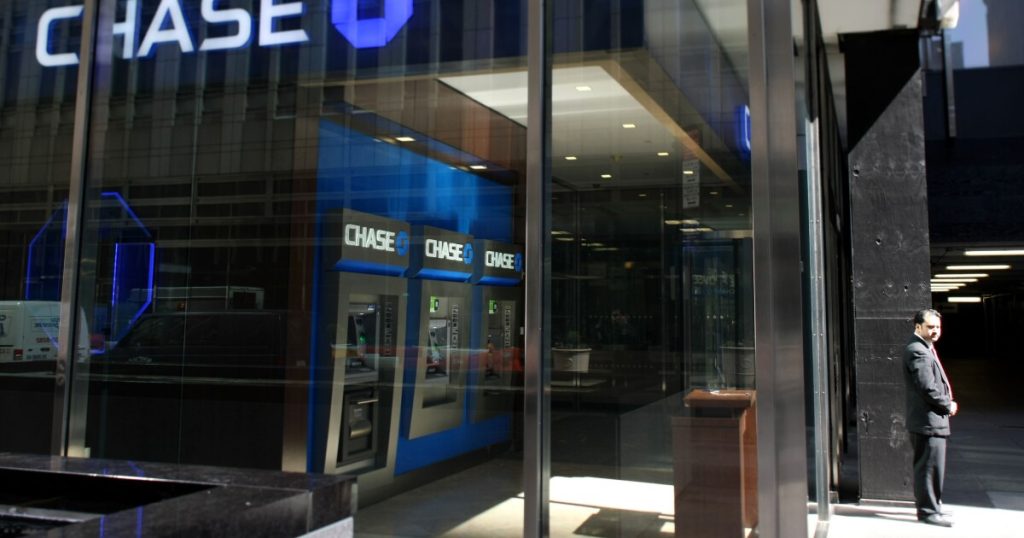The largest U.S. bank, JPMorganChase, has been in conversations with data aggregators — companies like Plaid that draw customer data from banks and feed it to their fintech clients — to charge them for this data. The bank said the new fees are intended to offset the costs of maintaining a secure system for protecting customer data; it did not say how much it will charge.
“We’ve invested significant resources creating a valuable and secure system that protects customer data,” said JPMorgan spokeswoman Emma Eatman. “We’ve had productive conversations and are working with the entire ecosystem to ensure we’re all making the necessary investments in the infrastructure that keeps our customers safe.”
The conversations between JPMorgan and the data aggregators have been constructive, according to a person familiar with those discussions.
“There is an understanding and agreement that there is value that [the bank has] created through significant investments in building up infrastructure for data sharing,” this person said. “The aggregators have been leveraging that, and they built businesses off of that. The bank should be getting compensated for the value of the significant investment it made.”
For data aggregators, “the cost of goods sold has been zero. They charge their customers, the fintechs, and they have not had to pay in any way to actually get any of that data,” the person familiar with the conversations said.
The move, which was first reported in
The Financial Data and Technology Association, a group that represents data aggregators including Plaid, Intuit and Trustly, objected on several grounds.
“JPMorganChase is exploiting regulatory uncertainty to levy an arbitrary and punitive tax on competitive offerings,” FDATA said in a statement shared with American Banker. “This is a blatant effort to curtail innovation and undermine a stronger American financial system.”
It is assumed that data aggregators will pass bank fees on to fintechs. PayPal’s stock price dropped 2.8% after the news came out, a hit that
“This is huge,” Todd H. Baker, senior fellow at the Richman Center for Business, Law and Public Policy at Columbia Business and Law Schools, wrote in a LinkedIn post. “By some accounts, 25% of U.S. individuals are customers of JPMorganChase. Many U.S. fintechs require that data for their apps to work. If they have to pay for it, watch out.”
JPMorgan’s plan to charge fees to aggregators comes after a decade of rancor between banks, fintechs and data aggregators over the sharing of consumers’ bank account data.
Banks historically have seen their customer databases as information they need to protect and use to provide their customers with products and services. Fintechs see their own products and services as more innovative and popular than banks’ offerings; many of them depend on bank account data to function properly.
Data aggregators like Plaid originally established themselves as middlemen by getting consumers to provide them with their bank account login data, accessing banks’ online banking sites with the consumers’ credentials and siphoning out that data, then passing it on to fintech clients, without telling the banks what was going on.
To banks, these high-volume, automated hits on their core systems looked like denial of service attacks or malware and sometimes overloaded their servers. Over the years, data aggregators established relationships with banks whereby they pulled customer data out of the banks through application programming interfaces; JPMorgan was one of the first banks to come to such agreements.
The Dodd-Frank Act of 2011 required the Consumer Financial Protection Bureau to establish rules around the sharing of consumer bank account data. Last year, the CFPB finalized its Personal Financial Data Rights Rule. The rule
Though the rule was originally supposed to take effect in January, the CFPB’s new leadership under the Trump administration has moved to vacate it, creating a regulatory vacuum.
Data aggregators say they will pass JPMorgan’s fees on to their fintech clients, who will pass them on to consumers. The fees will also limit consumers’ financial choices and jeopardize innovation across the financial technology ecosystem, according to the data aggregators. In addition, they fear that JPMorgan’s move will set a precedent for other banks to follow.
The person familiar with the bank’s conversations with aggregators pointed out that the bank is not directly charging the underlying fintechs or their consumers.
“I don’t know if they’re going to pass along the cost or not,” this person said. “The bank’s goal is certainly not to destroy the ecosystem,” but simply to be compensated for a product it is providing. This source also noted that data aggregators commonly pull customer data, such as payments information, that the underlying fintech does not need for its app.

